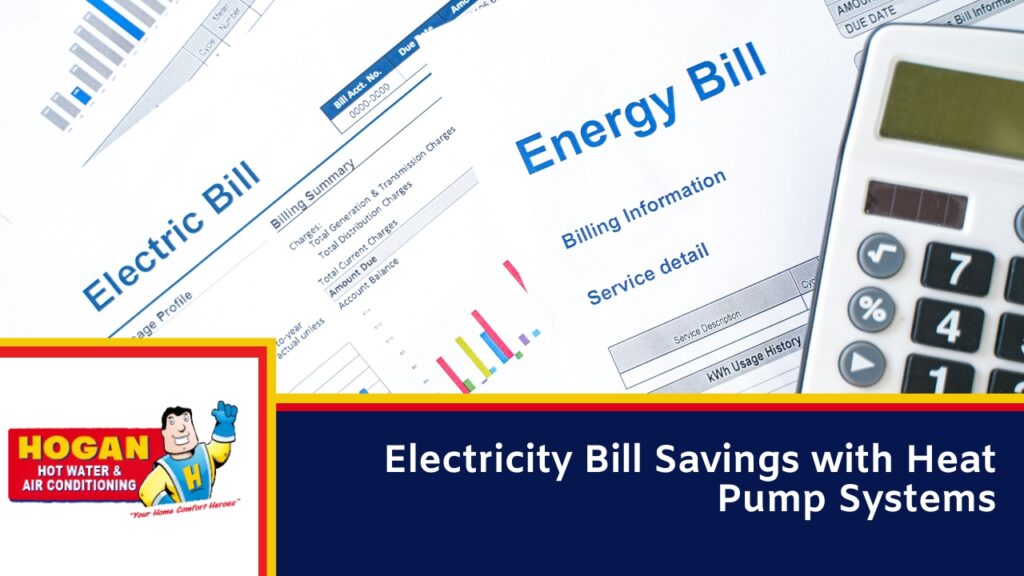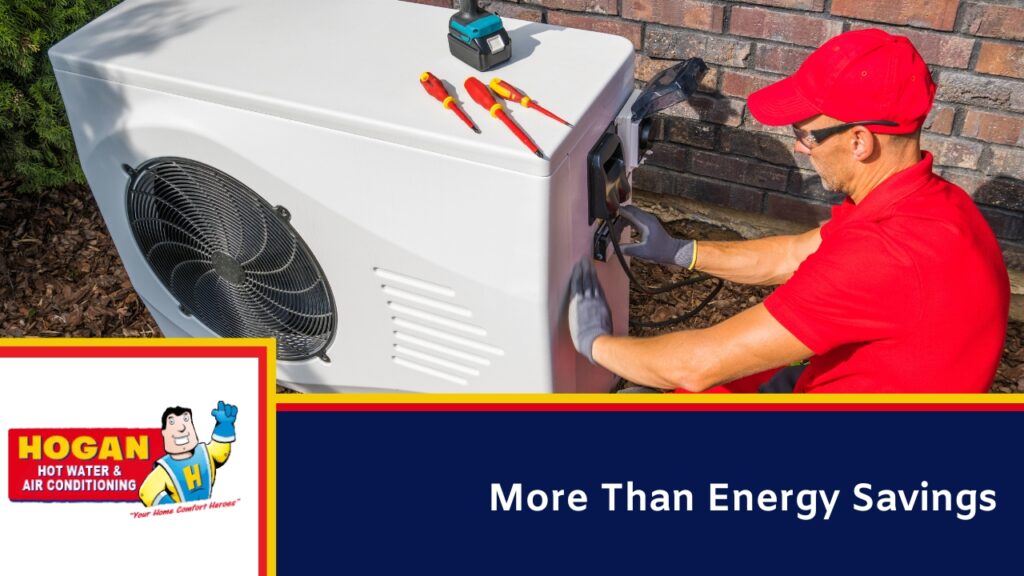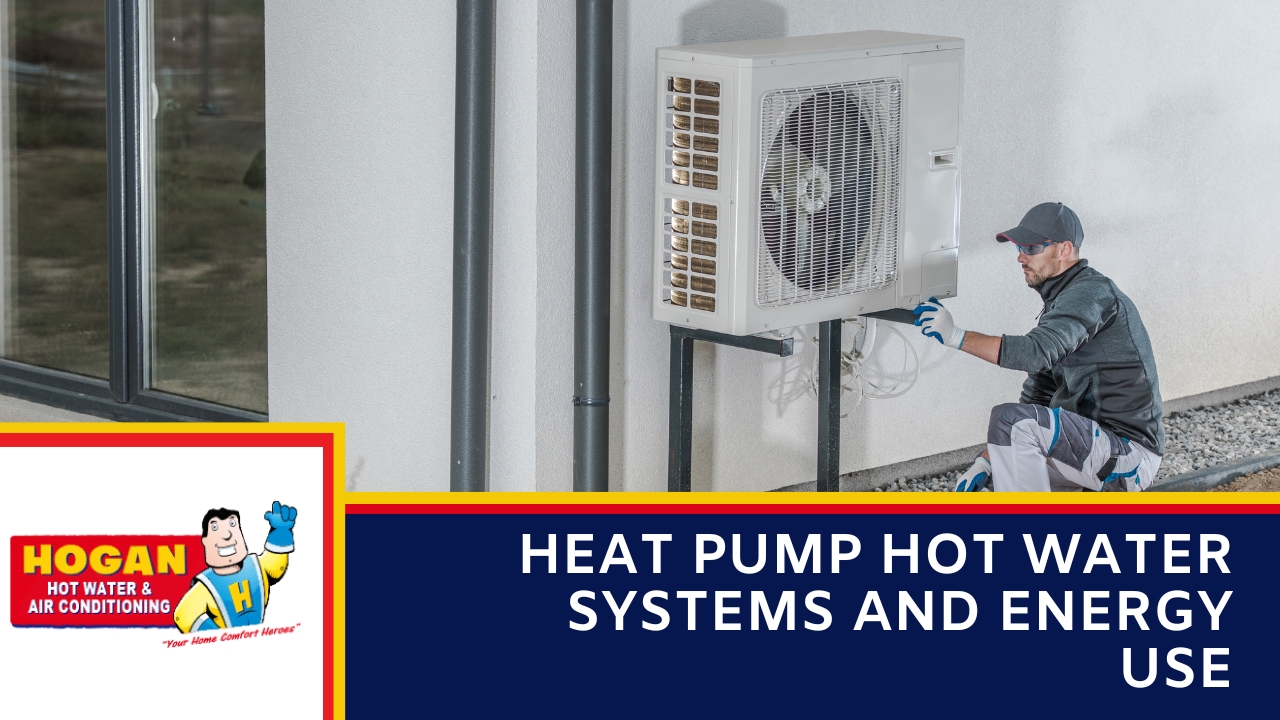Heating water makes up a large part of household electricity costs in NSW. This is especially true for homes still using older electric or gas units. Heat pump hot water systems offer a more efficient way to produce hot water using less electricity. Instead of generating heat directly, the system transfers warmth from the air into the water using a refrigerant and compressor process.
The setup works like a fridge in reverse. It pulls air across a coil filled with refrigerant, which absorbs heat, turns into gas, and is compressed to a higher temperature. This heat is then used to warm water in a storage tank. The system repeats this cycle using only a small amount of electricity.
Compared to traditional electric hot water systems, heat pumps can deliver three to four times more heat per unit of electricity. This makes them suitable even in cooler areas of NSW and helps reduce running costs without sacrificing hot water supply.
Electricity Bill Savings with Heat Pump Systems
For many households, hot water use can account for up to 30% of electricity bills. Heat pump systems help reduce this significantly by using 60% to 75% less power than older electric systems.
For example:
- Swapping from a standard electric system can save up to $890 a year
- Replacing a gas system may save up to $420 annually
These savings make a major difference for households in Newcastle, Maitland, Lake Macquarie and nearby areas. The actual savings depend on usage patterns and how efficient the previous system was, but most homes see noticeable drops in electricity use over time.

Available Rebates for Heat Pump Installations
Homeowners upgrading to a heat pump system may qualify for several government-backed rebates. The NSW Energy Rebates Program provides financial incentives when eligible systems are installed. These discounts are often applied directly to the purchase price by the installer.
At the federal level, the Small-Scale Technology Certificate (STC) scheme offers further savings. The number of certificates depends on the system type, efficiency and location.
Combining both NSW and federal incentives, households can reduce upfront costs while upgrading to a more efficient system. To access these benefits, ensure the installation is done by an accredited professional and that the unit is approved under the listed schemes.
More Than Energy Savings
In addition to cutting power use, heat pump systems contribute to reduced emissions. They rely less on fossil fuels and produce fewer greenhouse gases than gas or conventional electric water heaters.

Units built for Australian conditions maintain consistent performance across seasons. Some brands also support integration with solar PV, allowing homes to store excess solar power as hot water. This further lowers grid reliance and extends the benefits of existing rooftop systems.
Other key benefits include:
- Extended system life compared to older electric units
- Quiet operation
- Increased appeal to future home buyers
Proper installation ensures the system meets daily needs with minimal maintenance.
What to Consider Before Installing a Heat Pump
Choosing the right system depends on household size, layout and daily hot water needs. Most brands offer multiple capacities, from 180L to 270L, suitable for different family sizes.
Popular models in NSW include:
- iStore, compatible with solar setups
- Rheem, reliable in colder climates
- Quantum, designed for low-temperature air extraction
Correct placement is also important. These systems need ventilation and perform best in open areas with steady airflow. Always book a licensed local installer to assess the site and recommend the best size and brand.
Oversized or incorrectly installed units may use more power or fall short of demand. A tailored setup helps ensure efficient long-term use.
When Is the Best Time to Upgrade Your Hot Water System?
Timing can make a difference when upgrading to a heat pump hot water system. Older electric or gas units tend to become less efficient as they age, especially after 8 to 10 years. If your current system is nearing the end of its service life, it’s worth considering a replacement before a failure occurs.
Planning an upgrade during the warmer months can also help. Heat pumps work by extracting warmth from the air, so installing during periods of higher ambient temperature allows the system to run more efficiently from day one. This can reduce early strain and improve long-term performance.
Homeowners undergoing renovations or installing solar panels may also benefit from switching to a heat pump. These systems can often be integrated into solar setups, allowing you to take advantage of both technologies at once.
Rebates and supply chain changes can affect pricing and availability, so it’s helpful to check for current government incentives and stock levels before booking. A pre-scheduled upgrade avoids urgent replacement costs and allows for proper system selection and installation planning.
Speak with Hogan Hot Water & Air Conditioning
For over 27 years, Hogan Hot Water & Air Conditioning has helped households across Newcastle, Lake Macquarie and the Central Coast choose the right hot water solutions. The team installs, maintains and repairs all major heat pump systems including iStore, Rheem, Quantum and DUX.
Led by Mike Kearney, a licensed Electrician, Plumber, Gas Fitter and Air Conditioning Technician, Hogan Hot Water offers expert service with strong knowledge of rebate eligibility, product performance and ongoing system care. Contact us to book an assessment for a heat pump hot water installation.

